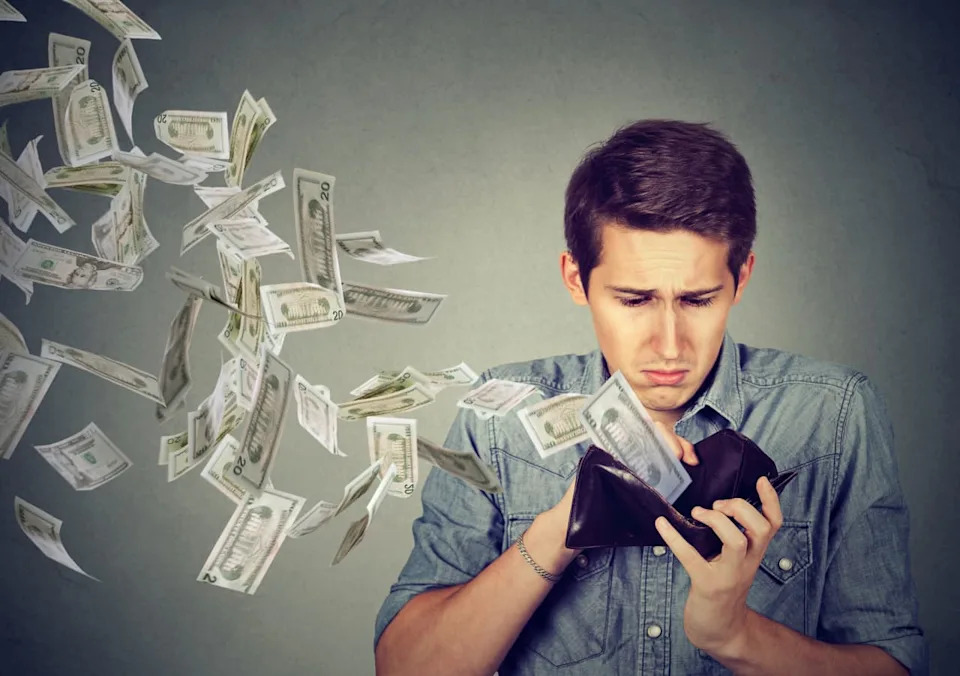
Americans have just hit their credit limit — literally. With credit-card interest rates above 20% and housing sales plunging to depths unseen since 2009, we’re staring at the mother of all consumer squeezes
Consider the U.S. housing market . While there is a bright spot in the most recent new home sales, thanks largely to builder incentives and discounts, the much larger market of existing homes saw sales slide in April to an anemic annual pace of just 4 million units.
That’s a flashing sign that consumer confidence is buckling. Homes are stacking up unsold, and buyers have vanished, tightening their wallets like Ebenezer Scrooge.
Then there’s the return of tariffs. Seven years ago, when President Donald Trump levied tariffs on everything from Chinese TVs to French cheese, foreign exporters mostly absorbed the hit. Americans’ wallets remained largely untouched. But today, China and Europe are economically wounded — too weak to spare American consumers. This time around, the tariffs will bite.
Yet tariffs aren’t the core threat; debt is. Americans aren’t suddenly paying down credit card balances because they’ve become financially savvy — they’re doing it out of sheer panic. After years of inflation-induced spending sprees, they’re now buried under soaring interest payments.
With fewer dollars available, spending on everything except necessities such as housing, utilities and healthcare is drying up. Many Americans aren’t tightening belts — they’re grabbing lifelines.
Consumer spending powers two-thirds of the U.S. economy. When Americans stop spending , corporate America feels like someone whose credit card gets declined on a first date: embarrassed, squeezed and facing bills they can’t afford.
Companies borrowed heavily during the cheap-money era, piling up almost $1 trillion in debt that’s now coming due. Refinancing at today’s punishingly high rates drains corporate cash away from hiring, innovation and dividends, right as consumers slam on the spending brakes.
Nowadays, spending isn’t about the latest gadgets or overpriced lattes — it’s all about housing, utilities and healthcare . In other words, Americans have traded shopping malls for doctor visits — talk about depressing trade-offs.
Read: Buyers are gaining the upper hand in a shifting housing market. ‘Everybody wants a deal.’
Companies selling discretionary items — stuff you buy when you actually like your bank account balance — are bracing for a bad year indeed.
Read: Lowe’s sales fall, as customers are avoiding products that cost $500 or more
Politicians love talking about bringing factories back to the U.S. — it’s patriotic, looks great on campaign fliers, and promises jobs. But reshoring isn’t a free lunch. Companies shifting production stateside are finding higher wages and material costs , squeezing profits.
This toxic combination — consumer debt overload, corporate refinancing nightmares and reshoring-induced cost spikes — is exactly how economic downturns become full-blown recessions.
Given this grim cocktail of economic stress, here’s how you might steer your portfolio clear of disaster:
Bottom line: the consumer squeeze isn’t merely looming — it’s already at the door. Now’s the time to reassess and protect your financial footing, because the economic storm is here, and it’s fierce.
Garcia holds positions in gold, silver and bitcoin. .
More: The stock market is ignoring the truth about how Trump’s policies impact the dollar and global economic growth
Plus: He called the S&P 500 bottom. Now this stock trader can’t rule out a ‘flash crash.’

